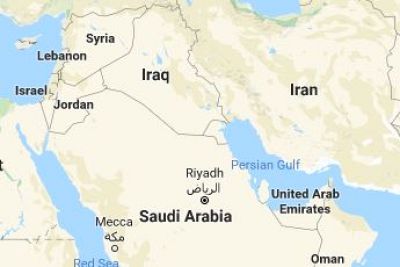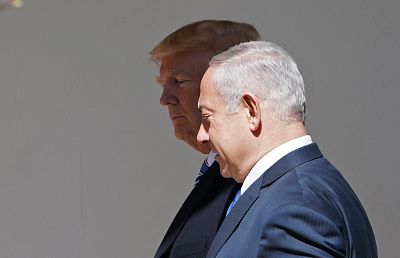Israel has struck inside Syria more than 100 times since 2012.
News Analysis
TEL AVIV, Israel — Monday's missile strikes targeting a Syrian air base highlight the nightmare scenario Israel is facing: arch-enemy Iran entrenching on the other side of its border.
Russia blamed Israel for the pre-dawn strike in Homs province. Two U.S. officials later confirmed to NBC News that Israel fired the missiles after informing Washington. Israel did not comment on the strikes, which a London-based monitoring group says killed 14 people, including Iranians.
Although Israel rarely provides details or takes responsibility for such attacks, its military acknowledges it has struck inside Syria more than 100 times since 2012. Most targets have been suspected weapons' convoys destined for Lebanese militant group Hezbollah, which has been engaged in battles alongside Syrian government forces.
Iran is a sponsor of Hezbollah and also backs Syrian President Bashar al-Assad.
Israel and Hezbollah fought a bloody 34-day war in 2006. More than 1,000 Lebanese — mostly civilians — were killed; 158 Israelis, 119 of them soldiers, also died. Many Israeli experts are convinced that the country's next war will be against Hezbollah, which is part of Lebanon's coalition government.
Assad is thought to be close to crushing the seven-year rebellionin his country thanks to Russia, as well as Iran and Hezbollah.
Meanwhile, President Donald Trump appears determined to get out of Syria, having argued with his military advisers only last week that he prefers to bring U.S. troops home in months, not years.
Yossi Mekelberg, head of international relations at London's Regent's University, says that the Israeli government fears "the Iranians are getting too close."
Trump's isolationist impulses also concern Israel profoundly.
"I think that the worry in Israel as in many other places … is Trump's unpredictability," Mekelberg said.
If the U.S. is not deeply involved in the Middle East, "Israel will find itself more and more feeling the need to act in Syria" to thwart the threat from Iran, according to Mekelberg. "Israel really does not want to act in Syria."
Underscoring the threat from the north, a senior cleric in Iran last week claimed that Hezbollah has weapons that could destroy the Israeli cities of Haifa and Tel Aviv. Referring to the 2006 war between Hezbollah and Israel, Ayatollah Ahmad Khatami said Friday that the Lebanese group's rockets had turned both cities into "ghost towns."
And now Hezbollah was much more powerful, Khatami said.
"If you want Haifa and Tel Aviv to be razed to the ground, you can try your chance once again," the firebrand cleric warned Israel.
Giora Eiland, the former head of the Israeli National Security Council, blamed decisions made during President Barack Obama's time in the White House for the situation unfolding in Syria.
"The biggest American mistake was not made in the past year, but it was made in the beginning of the uprising in Syria back in 2011," he said.
At that time there were only two parties in Syria, Eiland said: Assad's beleaguered government and a pro-democracy movement.
"Assad was quite lonely" and Western intervention could have made a big difference to those trying to oust him, he added.
Any advantage Syria's rebels might have had was lost after Russia's Sept. 2015 decision to support Assad militarily, Eiland said.
On Sunday, Trump condemned what he described as a "mindless CHEMICAL attack in Syria," laying the blame at the feet of Russia's Vladimir Putin, Assad and Iran.
Monday's Israeli missile strikes also followed a spike in cross-border firing earlier this year. On Feb. 10, the Israeli military shot down an Iranian drone launched from Syria into Israeli airspace.
In response, Israel launched a "large-scale attack" on at least a dozen Iranian targets in Syria, marking a escalation in tensions along the country's northern border. One of these targets was the same base hit early Monday.
Paul Goldman reported from Tel Aviv, and F. Brinley Bruton reported from London.













